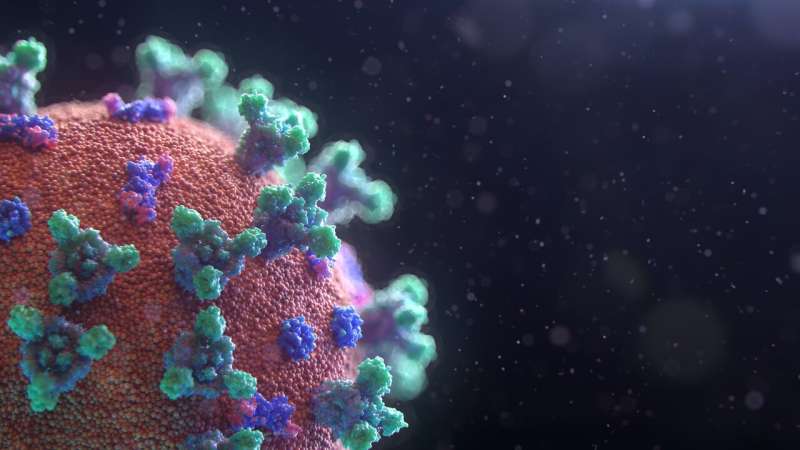Credit: Unsplash/CC0 Public Domain
As medical director of the VCU Health Surgery and Trauma Intensive Care Unit, Dr. Paula Ferrada has extensive experience managing COVID-19 patients. She's witnessed the suffering of patients, families and friends as those with COVID-19 become terribly sick, go on ventilators and sometimes pass away.
"I feel it's our responsibility, as health care providers going in the forefront, to not only continue to serve by providing clinical treatment, but to continue to serve by getting vaccinated," she said.
Despite a death toll reaching beyond 400,000 in the United States, Dr. Ferrada knows lots of people are still hesitant to accept the vaccine. For her, getting vaccinated was the right thing to do for herself, her son, her family and her patients. "It's the only way we're going to be able to start living again a normal life.
"I believe in science," she said. Plus, "I miss hugging people."
In this video diary, Dr. Ferrada explains five things you should know about the COVID-19 vaccine.
- The vaccine is safe and works for new, emerging variants. There's a lot of research behind the vaccine. Cutting-edge research suggests that even if the virus is mutating, the vaccine will be effective against all of those mutations. And with time, we're not only going to be immune to it, but we're also not going to get infected and give the virus to anybody else. The sooner we all get the vaccine, the sooner life will return to normal. If we all together get the vaccine, we will create herd immunity so we can stop using our masks as well.
- The vaccine cannot give you COVID-19. The vaccine is not going to give you COVID-19—it doesn't contain dead virus or a weakened form of the virus. It's just basically the protein that sparks an immune response in your body. It's going to give you what you need to create defenses against COVID. The vaccine isn't made from the virus. It's something that will make you stronger to fight it.
- The side effects shouldn't worry you. The possible side effects are pain and tiredness—nothing life-threatening. COVID, on the other hand, has many life-threatening consequences. I have been explaining it this way to people who are a little bit on the edge, who say, "Oh, I have only a 1% chance of getting complications from COVID, and I have a 1% chance of getting complications from the vaccine. Why would I choose the vaccine?" Because the one complication from the vaccine is feeling tired. That 1% complication of COVID is being on a ventilator in multi-organ system failure. So just balance "life-threatening" to "just a little bit of something you can treat with acetaminophen."
- Get the vaccine even if you've had COVID-19. If you get COVID-19, the antibodies you develop to fight it don't last more than three months. The antibodies you produce from the vaccine are longer lasting. There have also been cases of reinfection. COVID-19 comes from a virus, which can mutate. You can get reinfected from another strain, or mutation.
- Can you stop taking safety precautions after you get vaccinated? Not yet. Hopefully in the future we can—once we have 99.9% of people vaccinated. But right now, you took it but your family hasn't, and we just want to make sure we're on the safe side. So I think, again, it's all of our responsibility to protect ourselves and each other. And the only way that we're going to get through this is as a community—collaborating and being together as a community, helping each other.
Credit: Virginia Commonwealth University
Provided by Virginia Commonwealth University
























